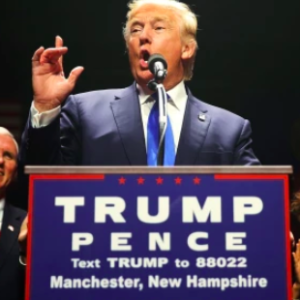On that sad January 6, 2021—a date which will live in infamy—I was at a session of the New Hampshire House of Representatives which incongruously was held in a vast frozen parking lot at the University of New Hampshire in Durham. I was actually in a pickup truck with three fellow representatives (and a newborn baby) participating via remote control—the ultimate in social distancing—to accommodate the sensibilities of other colleagues concerned about the specter of the COVID-19 virus.
While conducting the people’s business that day many of us received text messages describing horrific events in Washington, D.C., where supporters of President Donald Trump stormed the U.S. Capitol. Details were sketchy, but we soon learned enough that we sought to make a statement. Subsequently, our body resolved to condemn the riot as it was still ongoing—one of the proudest moments in the Granite State’s long legislative history.
We later learned that the president sat for hours watching a television as the carnage proceeded. At issue was his faithful vice president’s refusal to oppose certification of the 2020 election. As Trump acolytes chanted “Hang Mike Pence,” the president’s response to his aides was, “He deserves it.”
So much for loyalty—something Trump demands but doesn’t offer, except on his own terms.
The infamous events of that January 6 led to Trump’s second impeachment.
In this Information Age Trump’s words and actions are part of an unprecedented public record. Americans can make their own judgments. Was he treated unfairly by the media? Of course. Was it unpresidential to constantly complain about it? Absolutely. Were there numerous election irregularities in 2020? Yes. Was the election stolen? No.
Trump lost by around 7 million votes.
Most presidents enhance their legacies after leaving office. Trump’s real achievements are unfortunately obscured by his self-serving pronouncements and bullying. Sure, there are those who enjoy his antics but ridiculing those who challenge him and bestowing such folks with nasty nicknames is juvenile and tiresome.
Somehow, one just can’t imagine Washington or Lincoln referring to their rivals in that manner. Trump should read Lincoln’s generous second inaugural address, given a month before his death. It is carved into the wall at the Lincoln Memorial.
Trump has often counseled his contemporaries to never apologize, and one is hard pressed to find any sign of contrition on his part, despite all for which he should be sorry.
Still, despite Trump’s age and baggage, he now senses opportunity, what with our flagging economy, reduced international standing, and current hapless president. He’s apparently again set his eyes on the White House. But why must he put our country through all the drama, controversy, travails, and division that would inevitably accompany TRUMP 2.0?
The road to the White House runs through New Hampshire—where our tradition is to look presidential hopefuls in the eye and ask them direct questions, free from stage-managed events and sycophantic crowds. So, here’s an open invitation to the former president to sit down with a few of us regular Granite Staters for some questions and old-fashioned unscripted give-and-take, such as the likes of John McCain did here countless times. Surely Trump must remember John McCain.
Perhaps we could meet in our historic Representatives Hall, where numerous other presidents and luminaries have spoken directly to Granite Staters for over two centuries, going back to the Marquis de Lafayette. It might be a great experience for all concerned. And afterward, if he wanted, the former president could give us all nicknames.
“Live free or die!”




